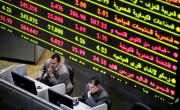Egyptian IPOs. Really?
The Egyptian Exchange roared back to life in 2013 and 2014, with its benchmark EGX 30 index doubling in the 18 months following the July 2013 coup that removed President Mohamed Morsi and his Muslim Brotherhood government from power. The military-backed regime of his successor, President Abdel Fattah el-Sisi, cashed in on that optimistic tide last September, raising 61 billion Egyptian pounds ($8 billion) from its own population through a bond issue to finance expansion of the Suez Canal.
Egypt’s dynamic entrepreneurial sector has produced two successful initial public offerings this year. Cairo-based health services provider Integrated Diagnostics Holdings raised $291 million in its May 6 debut on the London Stock Exchange, and its shares immediately jumped 20 percent. That was preceded in March by snack food producer Edita Food Industries, which raised 2 billion Egyptian pounds with a dual offering of global depositary receipts in London and ordinary shares in Cairo. The GDRs gained 31 percent from the offering price to trade at $16.10 on May 12.
These issues have whetted global investors’ appetitesfor more from the country of 84 million. “These are really good businesses,” says Laura Geritz, lead portfolio manager for Milwaukee-based Wasatch Funds’ $1.2 billion Frontier Emerging Small Countries Fund. “It’s a nice change of pace to see consumer-driven companies in the frontier-market space, which is dominated by banks and energy producers,” she continues.
Financiers were hoping to prolong the renaissance with more IPOs and repopulate a stock market that lost a number of its blue chips to acquisition or corporate emigration during the recent years of political turmoil. But clumsy policymaking by el-Sisi’s government has clouded that outlook.
One such policy snag is foreign exchange uncertainty in a nation starved for hard currency since the Arab Spring disturbances of 2011 devastated the country’s tourist business. Although most developing countries have shifted toward floating exchange rates, Egypt has maintained a mostly fixed official rate — which it allowed to fall to about 7.60 to the dollar in February from 7.12 previously — while tolerating a limited black market. The central bank tried to squeeze this unofficial channel out of existence in February by limiting Egyptian companies to $50,000 a month in hard-currency deposits. That has indeed constrained the black market but led to widespread anticipation of an official devaluation, complicating investment decisions.
The Egyptian Exchange scored a moral victory in March when Orascom Construction Industries, part of the diversified Egyptian conglomerate that juridically left its home country during the Muslim Brotherhood years, restored its local listing and raised 1.4 billion Egyptian pounds in the process. But Orascom’s Egyptian shares trade at a 7.5 percent discount to the company’s dollar-denominated shares listed on the Nasdaq Dubai exchange, reflecting devaluation fears.
The Finance Ministry has unveiled regulations implementing a 10 percent capital gains tax passed last year. These have been the main driver of a 15 percent drop in the EGX 30 and more than 50 percent contraction in trading volumes since February, says Mohamed Radwan, head of equities at Cairo-based investment bank Pharos Holding. “With our huge informal economy, retail investors don’t want to be tracked by the tax authorities,” he says. Currency restrictions have simultaneously “left foreign investors unsure about how they will be able to get their money out,” he adds.
Market-friendly adjustments in the currency and tax regimes could unclog a pipeline of Egyptian companies looking to come to market. The Egyptian Exchange received 18 applications for new listings or secondary offerings in the first four months of this year, up from four in the same period in 2014. On May 5 the board of Emaar Misr for Development, the Egyptian subsidiary of Dubai-based developer Emaar Properties, approved an IPO of up to 2.8 billion Egyptian pounds.
The enthusiasm comes against an improving economic background. TheInternational Monetary Fund projects that Egypt’s economic growth will accelerate to 4 percent this year, and 4.6 percent in 2016, from 2 percent in 2014. The country achieved a direct-investment milestone in March, inking a $12 billion agreement with oil supermajor BP to develop its West Nile Delta natural gas basin. Egypt is “moving in the right direction,” Masood Ahmed, director of the IMF’s Middle East and Central Asia Department, told Reuters earlier this month.
Global analysts are optimistic that el-Sisi’s advisers can surmount their regulatory teething pains as well. “We hear rumors that the capital gains tax could be amended, which fits with the general direction of trying to have an environment that is more conducive to investors,” says Philippe Dauba-Pantanacce, senior Middle East economist for Standard Chartered Bank in London.
Pharos’s Radwan is not so sure. “We have found the minister of Finance to be very rigid and stubborn in sticking to his positions,” he says, referring to the official, Hany Kadry Dimian. “The market responded when there was talk of a cabinet reshuffle, but it has not happened so far.”
Concerns about the efficacy of securities taxes are a problem many of Egypt’s neighbors in the region would love to have, however, and a marked improvement from the country’s own situation two years ago. Egypt is moving in the right direction, though it has yet to set its pace.


